Politicians Behaving Badly: 7 British Government Scandals
Greed and corruption abound in the fictional Roadkill, but British Parliament members have a very real record of getting themselves into hot water. We turned to modern British history experts Dr. Laura Beers of American University and the North American Conference on British Studies and Dr. Catherine Haddon from London’s Institute for Government for a round-up of scandals that rocked recent UK politics—from a swinging sixties affair at the height of the Cold War to a staged death on a Florida beach.
- 1.
1929-1964: Politician, Commentator, Bounder
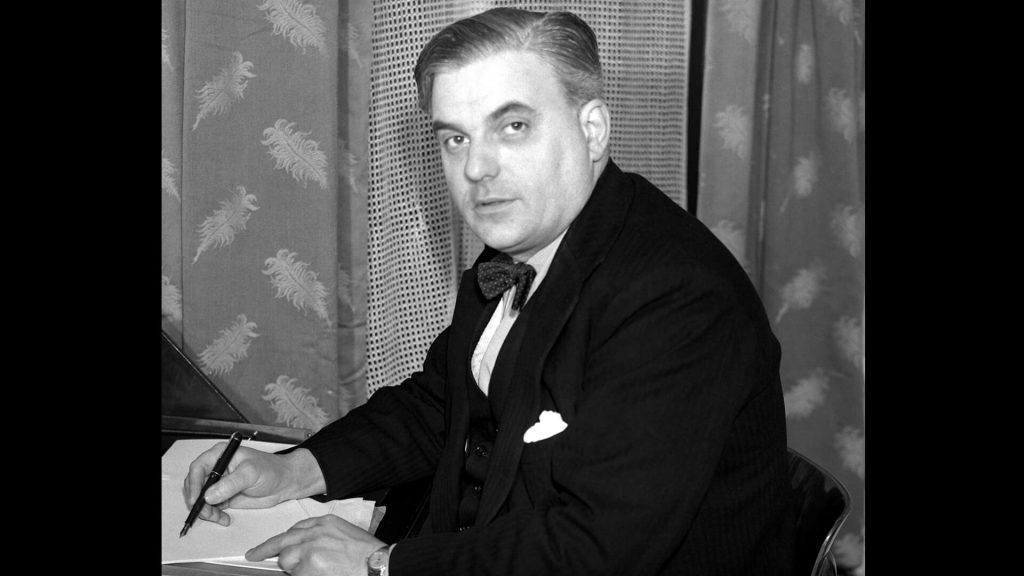

Robert “Bob” Boothby was a Conservative party member as well as a recurring BBC commentator on public affairs. He entered parliament in 1924, at a time when politicians’ private lives and private infidelities, however well known within Westminster, almost never made the headlines. During his more than 30 years in parliament, Boothby had a protracted affair with Dorothy Macmillan, the wife of his Conservative colleague Harold Macmillan, beginning in the 1930s and continuing through Macmillan’s succession to Prime Minister in 1956. Boothby also had a gay affair with notorious East End gangster Ronnie Kray, who with his identical twin Reggie, dominated London’s underworld for twenty years. That illicit relationship was hushed up by the largely pro-Tory tabloid press for years before being inferred by the Daily Mirror in 1964, a year after John Profumo (see below) rose to notoriety. The revelations sparked an MI-5 investigation but did not derail the career of the now Baron Boothby, who continued to sit in the House of Lords until his death in 1986.
- 2.
1961-1963: The Profumo Affair
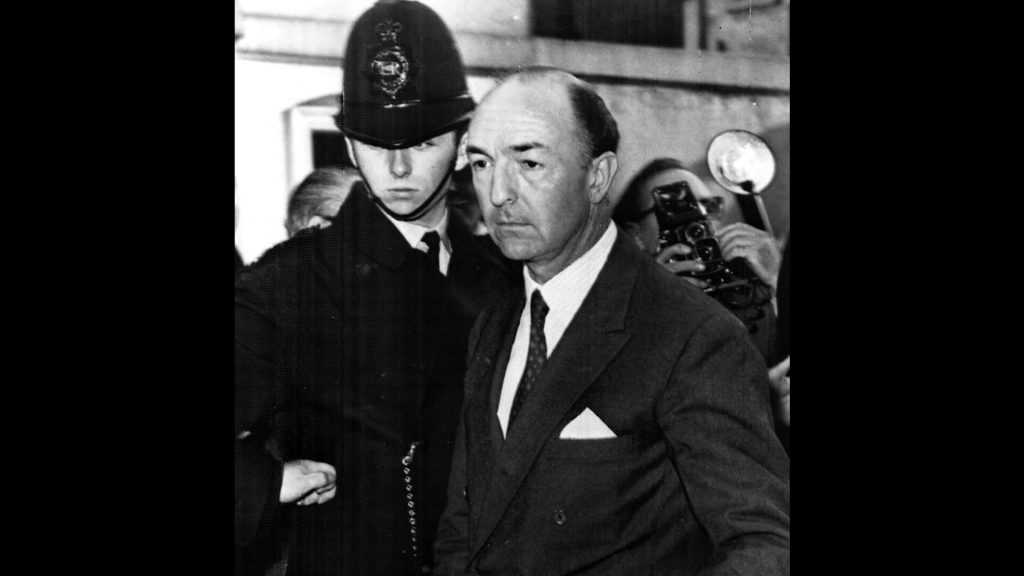

If Bob Boothby had entered politics a generation later, he may well have met the same fate as his Tory colleague John Profumo. Profumo was British Secretary of State for War when he began an affair with 19-year-old model, Christine Keeler. The two were introduced at an exclusive party at Lord Astor’s Cliveden estate, adding an extra layer of aristocratic debauchery to the story. At the time of their relationship, Keeler was also involved with Soviet naval attaché and suspected spy, Yevgeny “Eugene” Ivanov. Rumors of the affair and its potential security implications spread rapidly and, unlike Boothby’s underworld associations, did not stay quiet. Profumo denied the affair to the House of Commons. The police became involved and Keeler testified to the relationship, leading to Profumo’s resignation on June 5, 1963.
Profumo’s wife Valerie stood by him, and a “chastened and redemptive” Profumo became an anonymous volunteer with the poor. After his death, declassified M15 documents from the 1930s revealed Profumo had also had an affair with a Nazi spy.
- 3.
1961-1979: A Very British Scandal

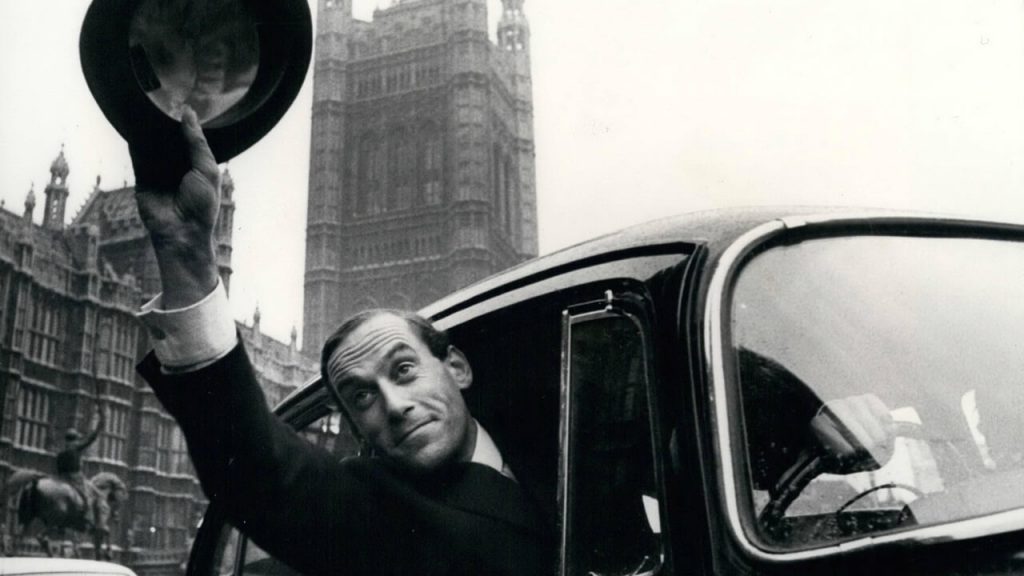
The true story of the first British politician to stand trial for conspiracy to murder was featured in the 2018 miniseries starring Hugh Grant and Ben Whishaw. Jeremy Thorpe was the stylish and charismatic Liberal party leader, desperate to hide a previous affair with Norman Scott, a stable hand he met while visiting a friend in 1961. When Scott refused to stop contacting Thorpe after the married MP ended their relationship, Thorpe allegedly paid to have his former lover killed. The October 1975 attempt on Scott failed, though his beloved Great Dane Rinka was shot.
Scott publicly accused Thorpe, who was forced to resign as leader of his party in May 1976. But the resignation did not end the scandal, which dragged on in the press and ultimately in the courts, with Thorpe becoming the first sitting MP to stand trial for murder in May 1979. While Thorpe was ultimately acquitted, the scandal ended his political career.
- 4.
1974: A Faked Death

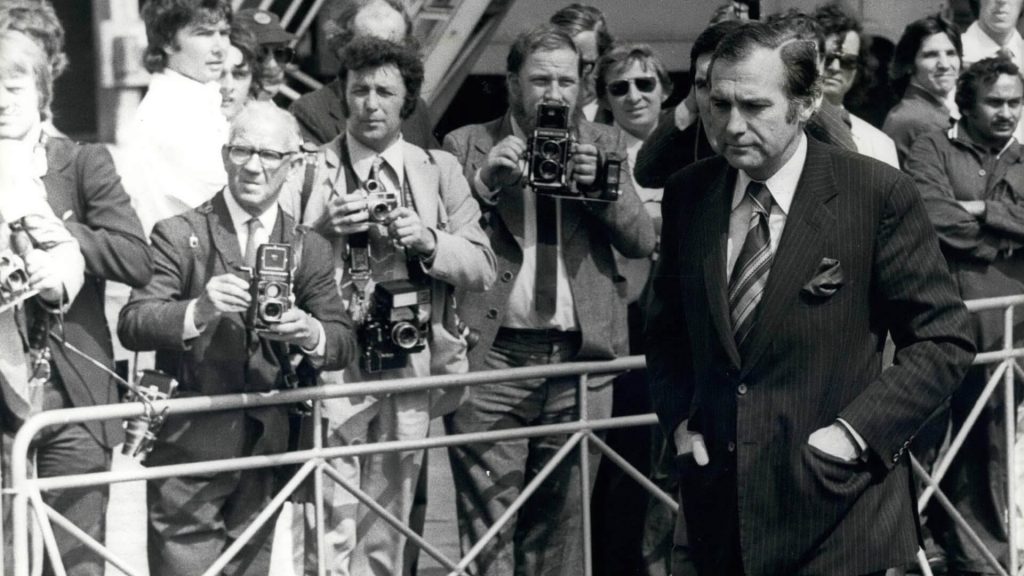
Even among British political scandals the story of John Stonehouse is a standout. Stonehouse was a former Labour cabinet minister who fell into financial trouble and came under investigation by the Department of Trade and Industry. Rather than face prosecution, he allegedly deposited his clothes on a beach in Miami, Florida to leave the impression that he had drowned.
As Miami police investigated his apparent demise, Stonehouse and his secretary fled to Australia to start a new life under assumed names. The pair lasted only a month before being discovered by chance. They were eventually deported to England where Stonehouse would stand trial in 1976 for fraud, theft and forgery. Remarkably, Stonehouse refused to relinquish his parliamentary seat after his “resurrection” and sat in parliament until conducting his own defense. He was convicted, served time in prison, and eventually wed his secretary.
- 5.
1993: “Back to Basics”


The 1980s lacked the political drama of the preceding decades, but there was nonetheless a sense within the Conservative Party that the Tories needed to change their image. While many admired Margaret Thatcher as the “Iron Lady,” others saw the Tories as the “nasty party.” When John Major took over for Thatcher in 1990, he set out to change the party’s image. In a 1993 speech, he famously declared that the country should go ‘back to basics’, returning to core values of “neighbourliness, decency, courtesy”. The slogan came to be a source of ridicule for the government over the next few years as ministers were caught in a quick succession of sex and money scandals that harkened back to those of the 1960s and 1970s.
Chancellor Norman Lamont was revealed to have a sex therapist living in his rented-out London flat. David Mellor resigned as a minister after sordid revelations of an extra-marital affair with actress Antonia de Sancha. Transport minister Steven Norris was reportedly having simultaneous affairs with three women who did not know about each other. Conservative MP Stephen Milligan was tragically found dead on his kitchen table as a result of auto-erotic asphyxiation. Major himself denied an affair with Downing Street caterer Clare Latimer. Years later, it was revealed he’d had a four-year affair with fellow conservative MP Edwina Currie. (Their relationship is assumed to have provided fodder for Currie’s political novels, including A Parliamentary Affair.)
In addition to press revelations of sexual improprieties, The Guardian brought the financial misconduct of certain ministers to light. The newspaper accused two MPs of being paid thousands of pounds to ask questions in Parliament on behalf of Harrod’s owner Mohammed Al-Fayed: Tim Smith resigned as Northern Ireland minister and later admitted to accepting the money; Conservative MP Neil Hamilton lost his libel suit against Al-Fayed when the court was satisfied the Harrod’s owner had, indeed, made his case. The Guardian and ITV’s investigative series both alleged that Conservative Cabinet minister Jonathan Aitken had improper commercial relations with Saudi businessmen. Aitken sued the news outlets but was later jailed for perjury after lying under oath. A far cry from the “decency” which Major had promised the British people!
- 6.
1998-2010: Third Time’s a Charm

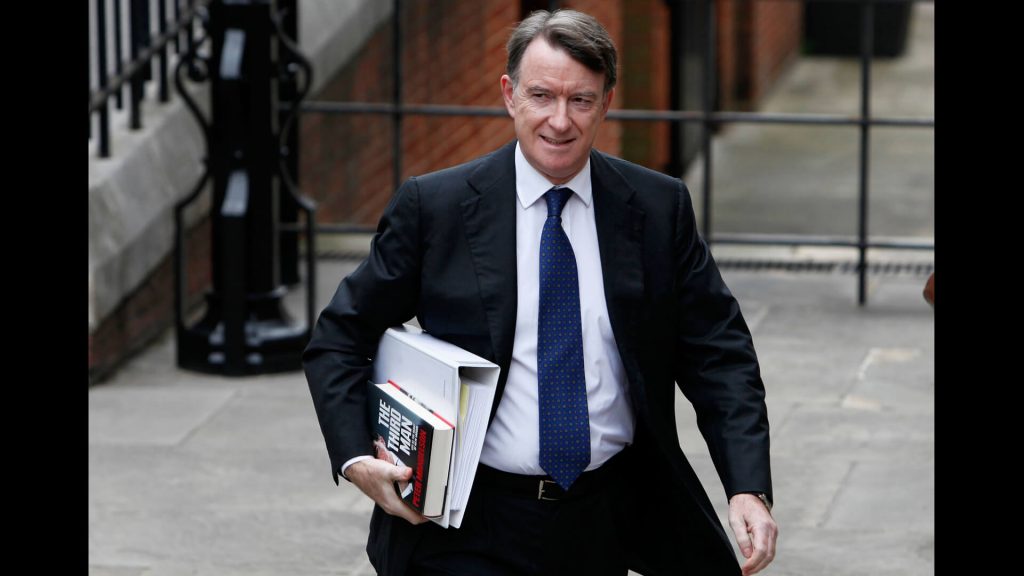
“Decency” is a word few have ever associated with Tony Blair’s longtime confident and New Labour mastermind Peter Mandelson, the political Svengali who orchestrated the 1997 election campaign resulting in Labour’s landslide victory.
Blair rewarded Mandelson by making him a Minister with Portfolio, or senior cabinet advisor, before moving him to the Department for Trade and Industry. “Mandy” was forced to resign this post after only five months when he was discovered to have accepted (and failed to declare) an Interest-free loan from a fellow ministerial colleague. He was back in government less than a year later, however, when Blair appointed him Minister for Northern Ireland. This time he lasted a year before being accused of inappropriately helping an Indian billionaire secure a British passport and resigned again In 2001.
In 2004, Peter Mandelson left parliament for the European Commission, where he served four years as a trade commissioner. Blair brought him back to Westminster in 2008 and Mandelson was appointed to the House of Lords, returning to government for a third time as Business Secretary. This time, he survived the post until the government lost office in the 2010 election.
- 7.
2009: Expenses Crisis and the Duck House


MPs were perhaps willing to overlook Mandelson and others’ financial improprieties in part because they were worried about the skeletons in their own closets.
In addition to their official salaries, ministers are entitled to reimbursement for expenses associated with their parliamentary careers, including the costs of maintaining two homes—one in London and one in their constituency. These parliamentary “perks” had previously been kept from taxpayers’ prying eyes, but in 2009, stories of widespread abuses led journalists to launch a Freedom of Information Request to obtain access to ministers’ expenses. Two months before the official disclosure, The Telegraph newspaper obtained a leak of the records. Offenses included MPs falsely designating a second home in order to claim more expenses; submitting extra expenses for renovations or refurnishing homes; and evading or avoiding tax. One conservative MP was discovered to have claimed nearly £2000 for a new duck house. Several ministers and the Speaker of the House of Commons had to resign from their posts and five MPs were sent to jail as a result of fraudulent claims.
While less egregious than attempted murder or affairs with gangsters and feigned death, these “everyday” revelations of graft and dishonesty proved ultimately more damning to public confidence in ministers and in British politics more generally.
Editorial assistance for this feature provided by:


Dr. Laura Beers, Professor of History at American University and Executive Director of the North American Conference on British Studies.


Dr. Catherine Haddon, resident historian at London’s Institute for Government.




















